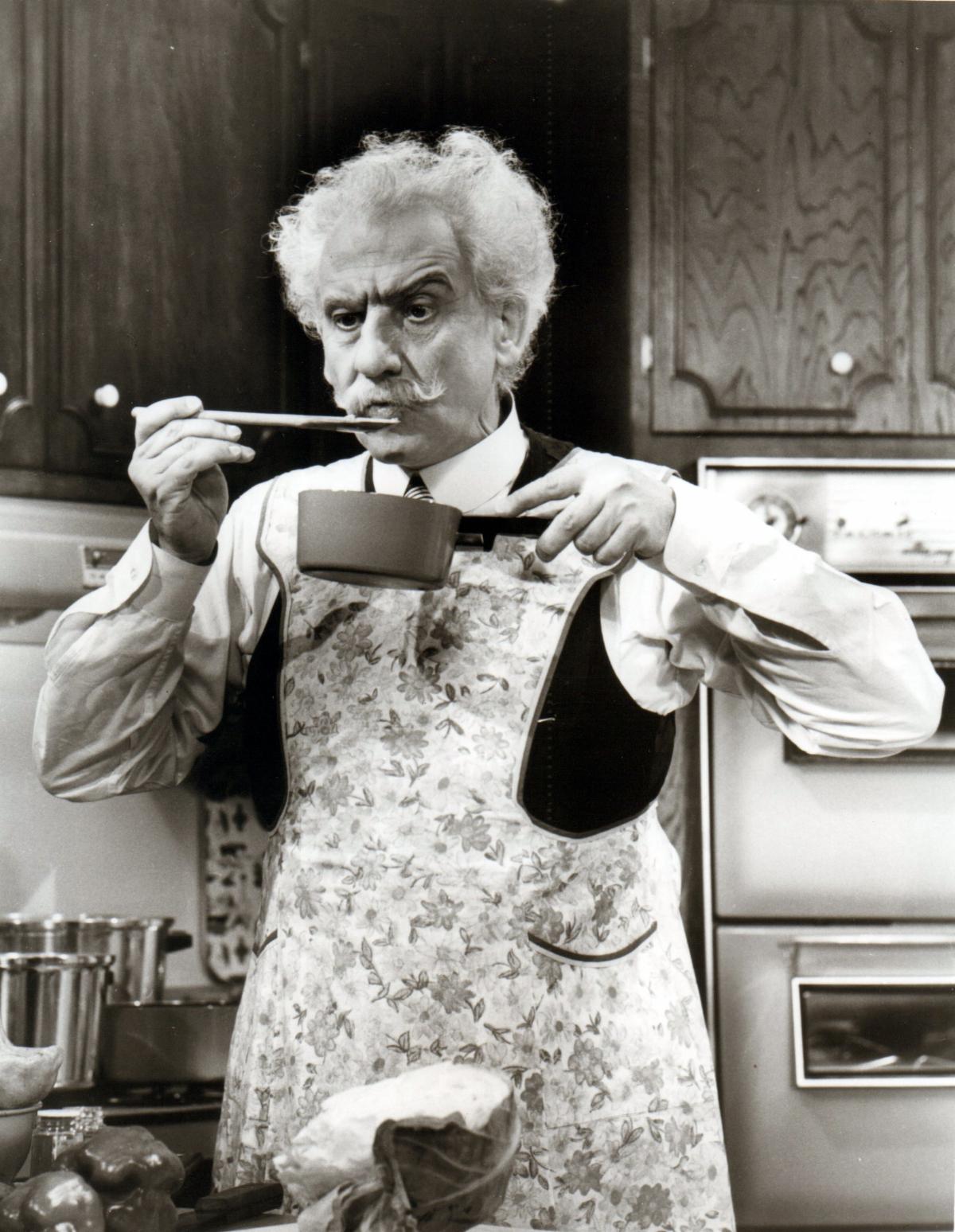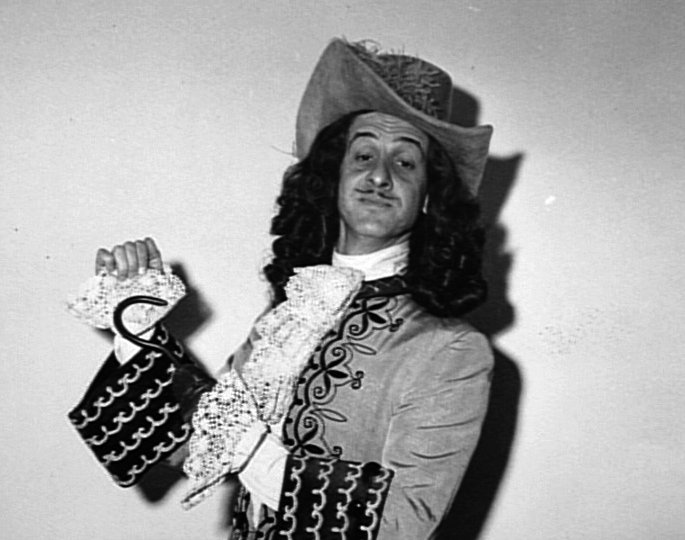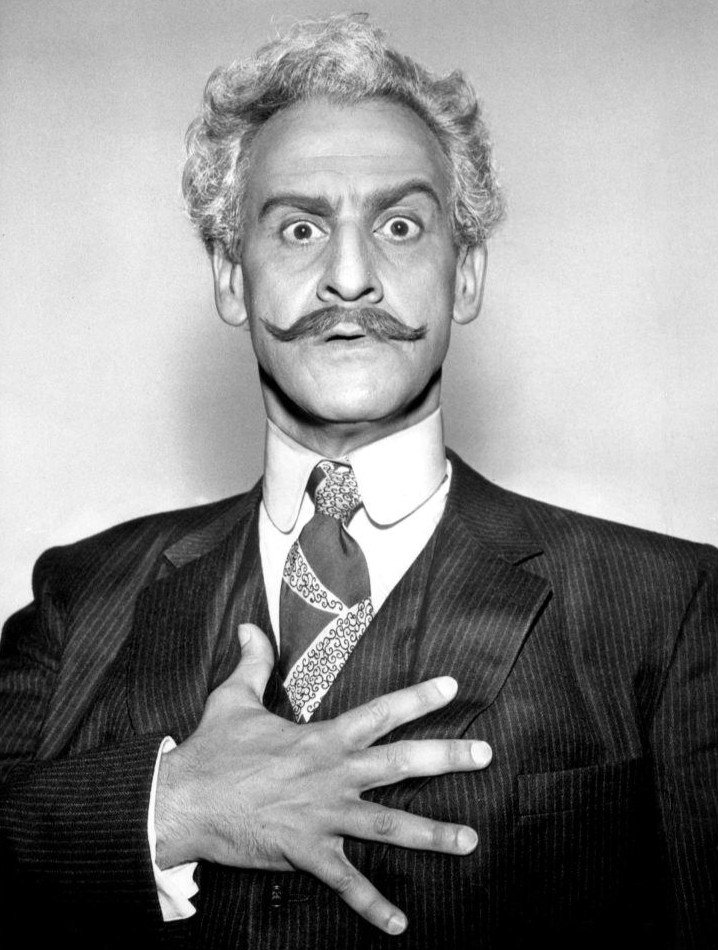Charmers continued
SOME OF MY CHARMERS…
CONTINUED
Hans Conried introduced method reflection to my commercial life— without having any idea at all that he was becoming an instrumental force in the furthering of my career. Hans Conried, in his time, was known from coast to coast because of his numerous television appearances as “Uncle Tonoose” from 1956 through 1971 on the “Make Room For Daddy” show, which, of course, starred “Danny Thomas.” But Hans was so much more than that. He was the consummate theater performer. The stage was his passion, the theater was his life.

He never stopped working until his last day on this earth. I always attempted to work my audition schedule around in order to allow extra time for me to spend with Hans when we had him scheduled to come in. In those days, we were literally housed in a mansion in the swank Los Feliz section of Los Angeles. The building had a full-size entertainment kitchen, where Hans would hold court when time permitted. I would just sit and listen to his stories of the theater. His were not merely stories, but rather an instructional guide to what was occurring theatrically around the world.
Keep in mind these were actors that were known not just in the United States, but also worldwide. I was merely doing my job. I wasn’t taking written notes about a system I would be using as an adjunct to my professional life. I was a complete and total sponge. Here were the actors that had studied with and had been directed by the biggest and most famous names in the world. I was growing by the second. Sleep became hard to come by. I found myself dreaming about something I had listened in to in our reception area. I never wanted to go to lunch in the early days, fearing that I’d be missing out on a conversation between Martin Landau, Ed Asner, Betty White, or comparing notes with Rue McClanahan, or Katherine Helmond. They were all there and they were all teaching me. And most of all, there was my favorite, Hans Conried.

Hans Conried was a tall man, around six foot three. His stature was that of a nobleman. He was always cast as some sort of character, never a man in the middle. His body language always gave birth to what would be done verbally. His look of contempt was second to none.
It became a game for me. I’d be watching Hans intently, attempting to know what he was about to deliver, and sure enough, he never let me down. I was gathering techniques by being his observer. Everything he did was from the inside out. He never read a line without first preparing. He never delivered a line without preceding it with a visual display of the attitude he intended to render.
What I didn’t realize at the time was that Hans was becoming one of my boosters. For whatever his reasons were, the word was out around our office: if anything came in for Hans Conried, it was to be referred to me. What took me aback was that the request also included his on-camera commercial work as well. Around a commercial talent agency like ours, instructing the on-camera department that a client insists on being represented by a member of the voice-over department was tantamount to declaring an ego war.
Admittedly, I was totally enjoying what had transpired. The head of the on-camera department, in order to soothe the ruffled feathers of his sub-agents, announced broadly during a company meeting that he doubted if we would ever get any requests for Hans Conried to appear in an on-camera commercial because he was too typecast as “Uncle Tonoose”.

As luck would have it, in a matter of no time at all, a call came in for Hans to be the spokesman for a chain of Midwest restaurants. In the commercial, he would be playing the role of a snobby upscale butler who waits on tables at the “Round the Corner” restaurants. I negotiated the deal that called for Hans to fly up to Denver to do the filming.
The most pleasing aspect for me was the extent to which our relationship was enhanced. Hans never missed a chance to praise me and put the knock on the rest of the company. What they didn’t get was that he was really being a tease.
The “Round The Corner” restaurant commercials ran for about four years. Interestingly enough, the campaign was such a huge success for the restaurant chain, that I negotiated the final two years of the Hans Conried contract on behalf of the Conried estate following his death. Although it all occurred many years ago, I will always remember my final conversation with Mrs. Conried. It was most gratifying to tell her that we were sending another check in the amount of twenty-four thousand dollars. As mentioned, it was two years after his death.
Certainly, my lessons learned from Hans have been passed on to the thousands of actors who have come my way. His visualization is one of the mainstays of my method. Some actors bring with them a surprise element. By that I mean, that while I understand and appreciate the degree of acceptance they have achieved, I didn’t expect the education they afforded me.
Harvey Kalmenson